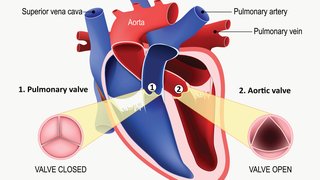
For people with heart disease, doctors often recommend a daily dose of aspirin to help prevent a heart attack or stroke, but the jury is still out regarding how much aspirin is appropriate.
“It may seem odd, but right now there’s not a consensus even among cardiologists about how much aspirin one should take,” says UT Southwestern cardiologist Sandeep Das, M.D., M.P.H. “Some recommend a dose for high-risk patients as low as 81 milligrams per day – the equivalent of a ‘baby aspirin’ – while others recommend 325 milligrams per day.”
A new clinical trial called ADAPTABLE, The Aspirin Study is currently underway to set the record straight on which of those two commonly used doses is more effective. The three-year study involves 20,000 heart disease patients across the U.S. and is comparing the benefits and side-effect risks of the two doses.
“One might justifiably think that by now we’d already have a standard regarding these issues, but we don’t,” Dr. Das says. “We have guidelines from the American College of Cardiology and the U.S. Preventive Task Force recommending the lower dose in certain situations, but many cardiologists are still recommending the higher dose to some of their patients.”
According to Dr. Das, daily aspirin therapy can be a lifesaving option for heart patients, but it’s not for everyone. He notes that, nationwide, 60 percent of patients take the 325-milligram dose each day after a heart attack and 36 percent take the 81-milligram dose.
How aspirin can prevent a heart attack
Dr. Das explains that in addition to its well-known use as a headache remedy, aspirin can help prevent a heart attack by impeding the “stickiness” of blood platelets and thus forestalling the formation of clots. He adds, however, that same impedance effect also has the potential to increase internal bleeding risk.
“That’s why doctors use aspirin differently,” Dr. Das says. “We have to weigh the potential benefits with the potential risks for each patient. As of right now, there hasn’t been enough research for a clear-cut recommendation for every situation, particularly for patients who have a high heart attack risk but a low bleeding risk – it’s not clear what dose is the right one. In general, physician recommendations reflect each physician’s personal preference, and that’s why the ADAPTABLE trial is so important. Its results will provide the data we need to inform future treatment decisions for our patients.”
Meanwhile, Dr. Das encourages heart disease patients and anyone else concerned about taking aspirin – and at what dose – to talk to their doctor.
“Our goal is to help patients make better-informed decisions about their treatment,” he says. “It’s very challenging for patients to navigate the sea of information and conflicting claims about heart health without assistance. My goal is for all of my patients to understand what the evidence shows are the risks and benefits of anything I recommend.”
For more information about the ADAPTABLE trial, visit TheAspirinStudy.org.
To schedule an appointment with Dr. Das, call 214-645-8300.











